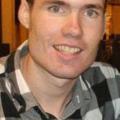
Professionals from across the public sector are coming together to tackle the "growing" health inequalities across Bury.
Official figures show that life expectancy and general health varies dramatically depending on which part of the borough someone lives in.
For example, in North Manor, women live until 85 on average (men until 81), compared to women and men in East ward (79.4 and 74.6 respectively).
People with learning disabilities die on average 20 years earlier, the data shows.
READ NEXT > Borough residents fined hundreds of pounds after being caught fly-tipping
Cllr Nathan Boroda, deputy cabinet member for health and wellbeing at the council, said: “We believe that your health should not be determined by the postcode that you live in.
"That’s why we are deeply concerned by the growing inequalities in life expectancy and healthy expectancy in our borough and across the country.
“In Bury, we are pioneering a new approach that recognises that health inequalities are inextricably linked to other forms of inequalities and therefore require all partners to work together to tackle them.
"We hope that this Team Bury approach will reduce the social determinants of health inequalities in our community.”
READ NEXT > Bury Market named one of the nation's favourites again in latest accolade
The new partnership held its first formal meeting on Tuesday, December 5 at The Mosses Centre in Bury.
Some of the first activities of the commission focused on the availability of affordable healthy food by extending the Healthy Start scheme, for pregnant women and families with young children, to stalls at Bury Market.
This supports families to get local produce and also supports the local economy directly through local businesses.
The council also worked with Bury CAB to carry out proactive work in the community supporting voluntary groups, and helping residents who are struggling to understand the support that is available to them.
Jon Hobday, Bury’s director of public health, said: “Inequalities are differences in health between groups of people that are avoidable and unfair, but they are not inevitable.
"This has driven Bury to set up a commission to understand the issues and make sure that residents can reach their potential.
“Many of the local services who deal with these issues have areas which overlap. For example, the relationship between primary and community healthcare and the places and communities they serve is vital.
"This work is reflected in the development of the neighbourhoods in Bury, which bring together healthcare, social services, and wider services in a place including housing, education, planning, environmental health, licensing and the voluntary sector.”
READ NEXT > Historic nightclub and bar building on the market for £1.2million
The council has developed a range of workplace policies to improve health, and become a Real Living Wage employer. It has also been praised for its policies and support for armed forces veterans.
Cllr Boroda commended the outstanding work done by the voluntary sector and community partners, ranging from the VCFA and The Big Fandango to Supporting Sisters and the Jewish mental health group.
A new Bury East Family Hub opened in October, and the council has brought in a new Family Safeguarding Model to address the needs of families in a co-ordinated way.



Comments: Our rules
We want our comments to be a lively and valuable part of our community - a place where readers can debate and engage with the most important local issues. The ability to comment on our stories is a privilege, not a right, however, and that privilege may be withdrawn if it is abused or misused.
Please report any comments that break our rules.
Read the rules hereLast Updated:
Report this comment Cancel